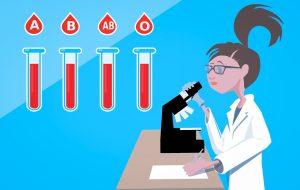Table of Contents
Introduction to Drug Testing:
A drug test checks for the presence of prescription or illegal drugs in your body. Drug tests normally check for drugs in your blood, urine, sweat, hair, or saliva.
The most common drug test, especially in the workplace is the Urine Drug Screen Or UDS. A UDS will check for the presence of drugs like Marijuana,
Drug usage decreases employee efficiency and can cause safety and health hazards. This is one of the major reasons for increased workplace drug testing.
Workplace Drug Testing in South Africa:
Most workplaces in South Africa have strict drug testing policies. This helps them identify employees who use drugs or alcohol. Most workplaces use drug testing kits to check for drug usage regularly, such as these:
Employees using drugs can be a hazard and a liability for their employer and co-workers as well. A worker who is under the influence is prone to accidents and poses danger to everyone around.
Drug-abusing employees also have reduced efficiency. They work slowly and can’t reach their work targets on time.
For these reasons, many companies are making drug testing mandatory for employees.
If you are looking to start a career or change jobs, you should be thorough on your prospective employee’s drug policies.
Why have companies resorted to drug testing in South Africa?
The workplaces in South Africa must strictly follow the Occupational Health and Safety Act or OHSA. According to this act, employees are to maintain a reasonably safe and practical working environment for the employees. The workplace and its employees should be free of any risk or harm.
If an employee is on alcohol or drugs, they may harm the work environment by causing accidents.
So, according to the provision of the act, employees must identify potential drug and alcohol users and separate them for the workforce. This will ensure the safety of the other employees.
How does drug tests help employers?
Regular drug tests have the following advantages for employers. These tests:
- Deter existing employees from unnecessary drug abuse.
- Prevent the hiring of employees who use or abuse drugs.
- Identify and help in early intervention for people needing drug de-addiction.
- Create a positive and safe work environment for employees.
- Create confidence in the public that the workplace is meeting with all necessary Government guidelines.
How do I know if my employer carries out drug testing?
Most workplaces in South Africa test employees for drug testing. They do this to comply with the Government mandates.
Strictness in testing differs between companies. While most workplaces have a zero-tolerance policy, some may be slightly liberal.
Some workplaces may require you to have mandatory testing done every day before you start your work. This especially applies to industries and workplaces with heavy machinery operations.
Most companies have a strict Substance Abuse Policy. Drug laws are quite strict in South Africa with a few exceptions. For this reason, many companies are particular in drug testing.
Your employee contract will contain details about your company’s drug testing policies. Your workplace may spell out how frequently drug testing is done. It will also outline the expectations of you, whether the company has a zero-tolerance policy, or is slightly lenient.
Apart from this, some workplaces will also have a handbook that outlines various aspects of drug testing and mandates. Most workplaces will also have their Substance Abuse Policies which inform their employees about the drug policies of the employer.
Employees are responsible for reading and understanding their workplace drug policies. If their workplace has a zero-tolerance approach, even an occasional weekend use of a joint may threaten employment prospects.
What points should a workplace list out in their drug abuse policy?
A company should inform its employees of the following pointers:
- What kind of drug tests are carried out? (whether urine, blood, saliva)
- What substances will be tested for (whether cocaine, marijuana, barbiturates, etc)
- When and where will the tests be done?
- How frequently will the employees be tested for?
- Whether everyone will be tested or employees will be tested randomly.
- How are random employees chosen?
- What policy does the workplace follow if an employee tests positive for a drug? (whether the employee will be rehabilitated)
As an employee what are my rights regarding my workplace’s drug abuse policy?
Knowing these points will help you fight for your rights in case of a violation by your workplace.
- All workplaces should have a strict drug abuse policy in place. The company’s policies must be communicated to you either in your employee contract or in the company’s handbook.
- Read all the provisions of the drug abuse policy thoroughly. Keep yourself informed of any changes in your company’s or the Government’s policies regarding drug use and abuse.
- Your workplace will take a written consent from you before testing for the presence of drugs.
- If you refuse to give consent, some companies consider it to be a wilful refusal to abide by the law. It also means that you agree to drug abuse. Your employer will take action accordingly.
- Your employer cannot force you to take the test.
- If your employer is conducting random testing, you can question them on the basis on which random employees are selected.
Conclusion:
Most workplaces in South Africa follow a strict drug testing policy. This is to adhere with the provisions of the Government law. Your employee contract or your workplace handbooks will contain all the information about your workplace drug abuse policies.
Staying informed of your company’s policies is important to ensure that you don’t face problems at your workplace. It will also help you make informed choices.
